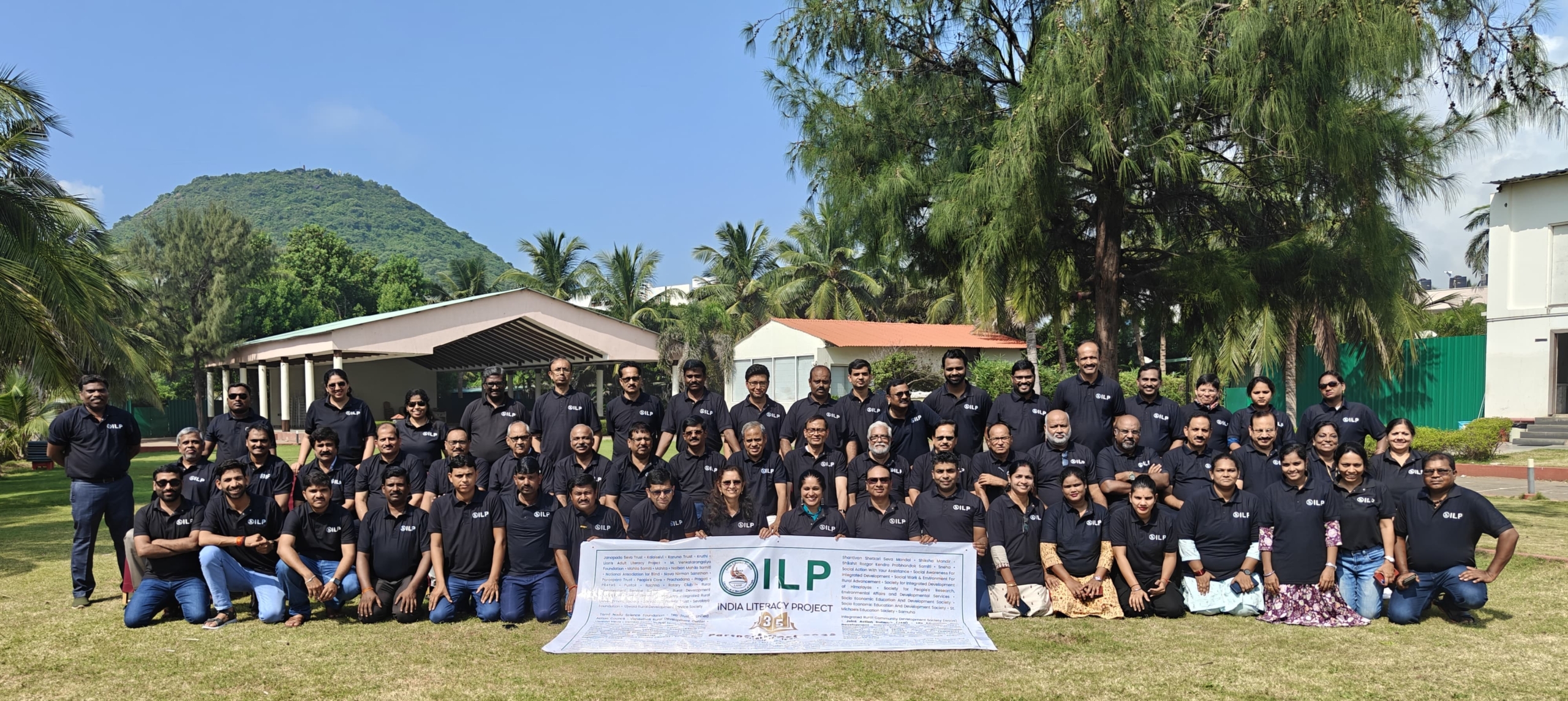This year’s ILP Partners Meet in Visakhapatnam was a collective reaffirmation of our shared dream: a future where every child, regardless of background, has access to quality education and meaningful learning.
We began by retracing the remarkable journey of ILP—35 years in the US and 25 years in India. Venki, Co-Founder of ILP USA, shared a moving reflection on how a few individuals in the U.S., came together to act on a startling finding from a study back then—that if nothing changed, every second person in India would be illiterate within a decade. What began as an urgent response evolved into a movement—sustained over decades with purpose, passion, and perseverance.
As we looked to the future, Jagdish Babu, CEO of EkStep, invited us to explore “Trends in Education – From Here to Where?” sparking conversations about what’s changing—and what must stay rooted—in our approach to learning.
Dr. Sneha Nikam from Wadhwani AI Foundation offered a compelling glimpse into how AI is transforming healthcare, and its promising potential in education—from identifying learning gaps early to enabling personalized learning pathways.
Among the most powerful moments were stories from our on-ground Partners—SNEHA (Kudligi), IRCDS (Tiruvallur), TN LEADS (Jharkhand), UAC (Odisha), GC (Odisha), and RDS (Telangana). They were stories of resilience, change, and lived experiences.
We also addressed critical legal shifts. Ashok Venkatesh Murthy, Partner at Factum Law, broke down the implications of the Digital Personal Data Protection Act 2023, helping NGOs stay informed and compliant while keeping their focus on impact.
In a thought-provoking session, Dr. Raja Sekhar Vasa, Regional Mentor of Change (Atal Tinkering Labs), and ILP Trustee Ambalavanan Ramachandran, explored the intersection of education and employability—challenging us to rethink skilling, aspiration-building, and real-world readiness.
The session concluded with an open house where partners shared ideas to accelerate the pace of change through deeper collaboration with governments in the next decade and a half. There was a shared urgency to move faster, think bigger, and act collectively.
